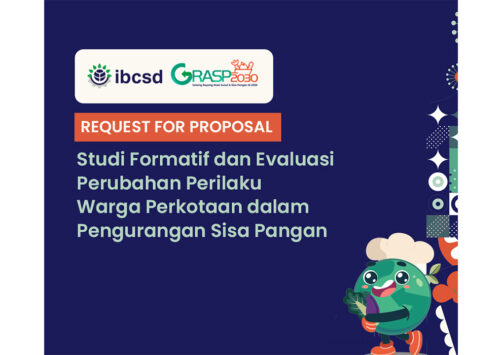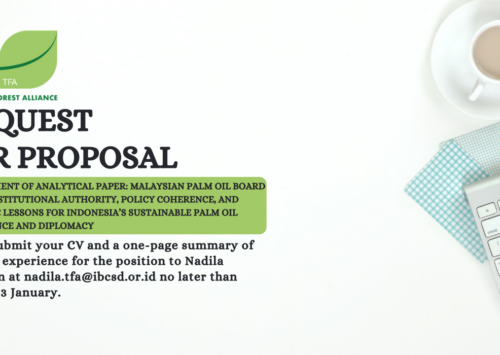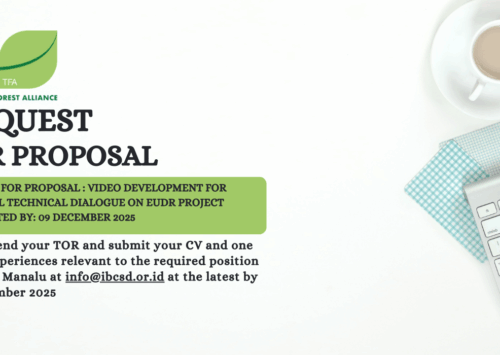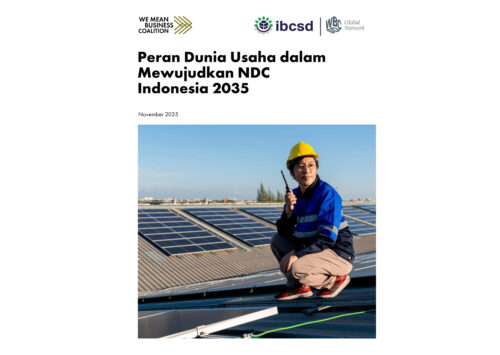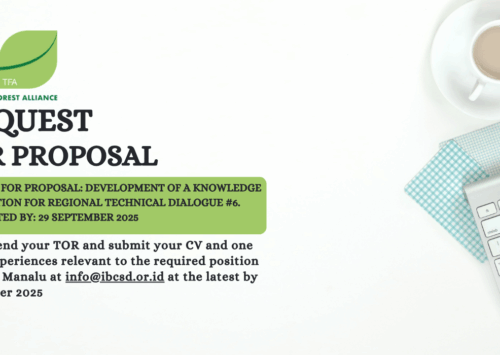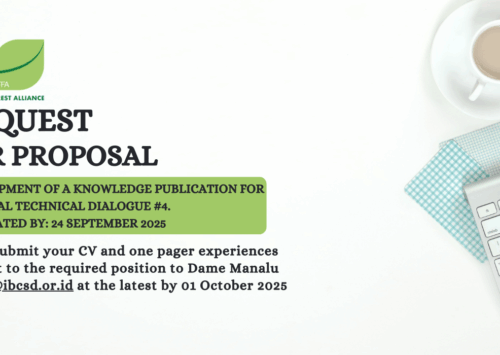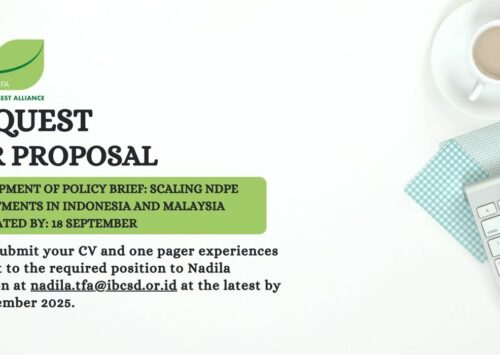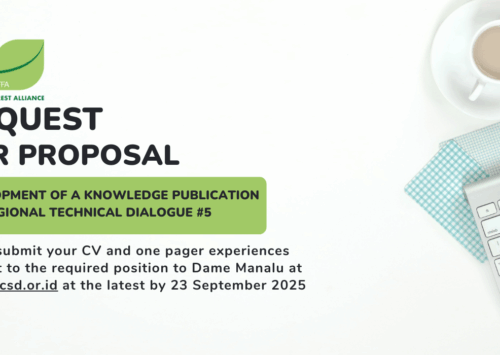-
Purpose and Objectives
IBCSD needs to recognize a deeper engagement with the private sector in the strategic areas of low carbon development to enhance its initiatives and impact on LCDI. To do so, it is crucial to have a clear understanding of the landscape, including identifying key players, their capabilities, existing collaborations, potential areas for partnership, as well as current gaps and priority needs for the private sector engagement in low carbon development initiatives.
The consultant will be tasked with conducting a detailed mapping exercise that identifies:
- Key private sector stakeholders within (specified sectors or regions).
- Existing and potential areas of engagement between the private sector and Low Carbon Development Initiatives (LCDI).
- Opportunities for private sector collaboration that align with LCDI strategy priorities.
- Current gaps and priority needs of the private sector in LCDI.
- Challenges and barriers that may hinder private sector involvement in LCDI.
-
Scope of Works
The primary objective of this consultancy is to develop a comprehensive mapping of the private sector’s potential, with a focus on:
- Analyzing the current landscape of private sector involvement in (specified sectors/regions).
- Identifying high-potential private sector entities for engagement and collaboration.
- Assessing the readiness and capacity of these entities to contribute to (specific goals or initiatives).
- Providing actionable recommendations for engaging the private sector effectively.
This mapping exercise is expected to provide a foundation for future initiatives that involve private sectors on LCDI. The consultant shall be able to propose any methodology deemed appropriate to deliver the best outcome from the outlined activities;
- Preliminary Drafting
The consultant will be responsible to develop a first draft of mapping (Bahasa) based on desk review conducted towards various materials, which at least include:
- Review of the national regulatory framework and incentives for private sector involvement on LCDI.
- Analyze specific plans related to key industrial sectors that are critical to low-carbon development.
- Analyze reports from any national industry associations that detail sectoral trends, challenges, and opportunities on the national LCDI.
- Consider market reports and investment analyses that highlight the private sector’s role in LCDI and also reports from organizations such as the World Bank, International Energy Agency (IEA), and the Global Green Growth Institute (GGGI) that provide insights into low-carbon development trends and best practices.
- Consider available academic articles, research papers, books, and references in Indonesia, issued by other institutions that discuss the role of the private sector in low-carbon development, focusing on case studies, innovative practices, and theoretical frameworks.
-
Stakeholder Input
Following the finalization of preliminary draft, consultant shall be responsible to conduct interview or discussion with governmental stakeholder and government-related institution relevant to private sector involvement on LCDI, which may include:
- Ministry of Energy and Mineral Resources (MEMR);
- Ministry of Environment and Forestry (MoEF);
- Ministry of National Planning (BAPPENAS);
- Related companies
The consultant may propose other related stakeholders to maximize the support in developing works.
- Validation Workshop
Validation workshops will be done by engaging an identified stakeholders, to ensure that the mapping exercise is accurate, comprehensive, and aligned with the needs and expectations of all stakeholders involved. The validation workshop is held to build consensus and buy-in among identified stakeholders. The workshop implementation will be in coordination with the IBCSD Team.
- Final Report
The consultant is expected to synthesize the findings from the desk review and develop a comprehensive report (Bahasa) of the private sector mapping. This report should include an overview of key players, potential opportunities for engagement, challenges, and recommendations for enhancing the private sector’s role in low-carbon development.
-
Tasks, Deliverables, and Expected Schedule
The tasks, outcome and products, as well as expected schedule to be delivered by the consultant are as follow:
| No | Tasks | Deliverables/Products | Expected Schedule |
| 1. | First Draft | Preliminary draft of mapping | 10 days |
| 2. | Stakeholders’ interview and dialogue/ discussions | Minutes of Meeting | 8 days |
| 3. | Validation Workshop | Activity Report | 1 day |
| 4. | Finalization of Report Mapping Potential Private Sector | Final Report | 5 days |
It is expected that the consultant is able to deliver their best results in 1 (one) month since the signing of contract/MoU. Consultant is expected to submit their own timeline of program plan in accordance with the outlined activities under this term of reference.
-
Division of Responsibility
Following is the division of responsibility or battery limit for the activities to be executed under this term of reference.
| No | Tasks | IBCSD | Consultant |
| 1. | First Draft Mapping | Providing access to any relevant references needed | Conducting overall activities until report preparation |
| 2. | Stakeholders’ Interview, Dialogue/ Discussions | Managing event: providing logistics and media, including venue (if necessary) | Preparing materials, reports, & analysis |
| 3. | Validation Workshop | Managing event: providing logistics and media, including venue | Preparing materials, reports, & analysis |
| 4. | Finalization of Mapping Report | Final review | Conducting overall activities until report preparation |
-
Proposal Submission
Following are the document to be submitted by consultant as proposal submission:
-
- Administrative
Consultant is expected to submit their legal document (e.g; Decree of Establishment/SK Menkumham atas Pengesahan Akta, Taxpayer Identification/NPWP), corporate profile and curriculum vitae of consultant, including extensive list of relevant working experiences.
- Technical
Consultant is expected to submit a technical proposal, which outlines their take on this term of reference as well as their proposed approach and methodology to answer the requirement of this term of reference and to fulfill the expected deliverables at optimal quality.
- Commercial
Consultant is expected to submit a commercial proposal, which already covers overall personnel and non-personnel cost at most competitive offers.
The above documents shall be submitted at the latest of:
Day/Date : Monday, September 2nd, 2024
Time : 13.00 WIB
-
Point of Contact
For any clarifications needed by consultant kindly contact the following:
Name : Lusye Marthalia
Title : Program Manager Circular Economy & Climate Energy
Mobile/WA : +62 856 1976 500
E-mail : [email protected] / [email protected]
